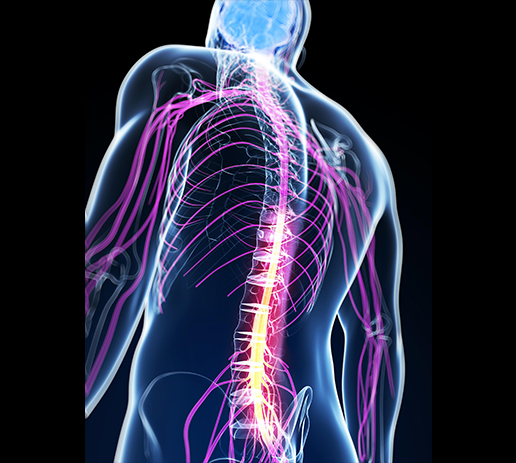Nerve and Muscle Disorders
Nerve and Muscle Disorder is a broad category of illnesses that harms how nerves and muscles communicate and function. These illnesses can severely curb an individual’s movement, independence, and quality of life.
This post will discuss several types of nerve and muscle disorders and their causes, symptoms, and treatments.
This post will discuss several types of nerve and muscle disorders and their causes, symptoms, and treatments.
Nerve and Muscle Disorders are Classified:
Peripheral Neuropathy: is an illness when the peripheral nerves that connect the brain and spinal cord to the rest of the body are injured. This results in multiple symptoms, such as numbness, tingling, weakness, and pain in the stricken part.
Myasthenia Gravis: is a neurological condition that causes weakness in the muscles that regulate movement, especially in the parts of the face, neck, and limbs. A breakdown in nerve and muscle communication causes this illness.
Muscular Dystrophy: is a hereditary disorder that causes slow weakening and muscle degeneration. This illness can impair multiple muscle groups, including the heart and breathing muscles.
Amyotrophic Lateral Sclerosis (ALS): ALS is a neurodegenerative disease that affects the nerve cells that govern voluntary muscles. This disorder can cause muscular weakness, paralysis, and respiratory failure in the worst-case scenario.
Myasthenia Gravis: is a neurological condition that causes weakness in the muscles that regulate movement, especially in the parts of the face, neck, and limbs. A breakdown in nerve and muscle communication causes this illness.
Muscular Dystrophy: is a hereditary disorder that causes slow weakening and muscle degeneration. This illness can impair multiple muscle groups, including the heart and breathing muscles.
Amyotrophic Lateral Sclerosis (ALS): ALS is a neurodegenerative disease that affects the nerve cells that govern voluntary muscles. This disorder can cause muscular weakness, paralysis, and respiratory failure in the worst-case scenario.

Causes:
The causes of nerve and muscle problems differ according to the ailment. In some circumstances, these problems may be inherited; in others, they may result from environmental causes such as toxicity or damage.
Symptoms:
Depending on the nature and severity of the ailment, the symptoms of nerve and muscle problems might vary greatly. Muscle weakness, cramping, numbness or tingling in the afflicted region, trouble walking or standing, and difficulty speaking or swallowing are all typical symptoms.
Treatment
Treatment for nerve and muscle problems will vary depending on the condition and severity. Medications are recommended in some circumstances to assist in controlling symptoms such as pain or muscular weakness. Physical and occupational therapy are also prescribed to aid in improving mobility and function. Surgery is necessary in more difficult situations to restore injured nerves or muscles.
Finally, nerve and muscle problems can substantially influence a person’s quality of life. If you are suffering any of the symptoms of a nerve or muscle issue, get medical assistance as soon as possible to receive an accurate diagnosis and appropriate treatment from the neurology experts like us. We assure you that you can have full lives with these diseases if properly managed.
OPEN HOURS
-
Artemin Hospital Sector 51, Gurugram, Haryana - 122001
- Mon - Sat 12pm to 5pm
-
Artemis life Hospital, New Friends Colony, New Delhi
- Wednesday - 4pm to 7pm
-
Medharbour Hospital, Sector 51, Gurgugram
- Mon - Thu 5pm to 7pm
For Appointment
-
Artemin Hospital Sector 51, Gurugram, Haryana - 122001
- 9910094615
-
Artemis life Hospital, New Friends Colony, New Delhi
- 01146583333/ 9818718658
-
Medharbour Hospital, Sector 51, Gurgugram
- 9971679666/ 9971631222/ 01242577222
- Copyright 2023 Dr. Sumit Singh. All Rights Reserved.
